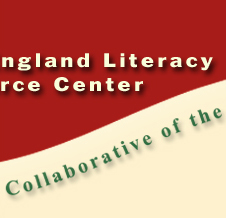
Rhode Island Family Literacy Initiative
Program:
Rhode Island Family Literacy Initiative (RIFLI)
Providence Public Library
225 Washington Street
Providence RI 02903
Tel. 401-455-8066
Fax 401-455-8081
Mission
Established in 1988, the mission of the Rhode Island Family Literacy Initiative (RIFLI) is to provide learner-centered literacy programming for Rhode Island families facing social, economic, and educational barriers because of limited English Language skills. By locating ESOL family literacy programs in a library setting RIFLI is advancing the mission of public libraries to serve the underserved in the community, and to promote lifelong learning and develop future library users.
Services
The RIFLI program is a free, first step language and literacy program for adults and their children based in five public library systems throughout Rhode Island. RIFLI values and builds upon the diverse cultures of participating families and seeks to establish a positive basis for continued educational growth. RIFLI serves about 700 beginner to low-intermediate Adult ESOL students a year and refers more advanced students to other programs. The program serves around 300 children between the ages of 3 and 14.
The five public libraries work as a collaborative providing family literacy programs at each branch. Each library serves different language learners and determines the needs of their students. Classes meet twice a week for 1.5-3 hours. Adults are in classes at the same time as their children. The children and adults work together for a ½ hour each session. Although staff at each library branch determines the curriculum and activities for their students, there is regular communication between all staff at the eleven branches. The program runs year round with two 15-week sessions in the spring and fall and a shorter summer session.
Rationale and Background of the Practice
The RIFLI collaborative began as a dialogue between library staff based on shared goals, and values. The program was implemented as a direct response to the needs of the growing immigrant community in Rhode Island. In the 1980's, the Providence Public Library began receiving many requests from recent immigrants to America for ESOL services. The library responded by implementing a family literacy program based on the Ruth Handel and Marianne Goldsmith's Family Literacy Model, ( Approaches to Intergenerational Literacy, New Readers Press, 1990). Literacy programs at the Queens Public Library also influence the program. Evidence-based family literacy models like Even Start influence the practice. Since 85% of the participants are working, RIFLI programs are offered in the mornings, evenings, and on Saturdays to accommodate their schedules.
Initially, the Providence Public Library provided both ABE and ESOL classes but the need for ESOL family literacy services was so great the decision was made to focus on the needs of recent immigrants with lower level literacy needs. In 1997, Congress rescinded the funding and eight libraries were left with strong, well-attended literacy programs, and no funding. In response to this crisis, librarians and local literacy advocates came together to collaborate on securing new funding. In 1998, the collaboration was successful in receiving funds through the Rhode Island Foundation, allowing two of the libraries to run a pilot program modeled after the Providence Public Library's Family Literacy Program. As of 2004, RIFLI has 18 programs at eleven library branches in five library systems.
Description of the Practice
There are two dimensions of this practice that are highly intertwined: the family literacy programs running at each library and the collaboration of five public libraries united by the goal of being responsive to the changing literacy and language needs of the communities they serve. RIFLI unites the mission of public libraries and the mission of family literacy programs “to serve the underserved.”
RIFLI's family literacy services are learner driven . Students are queried on what they need English for and are asked to provide detail, if even in their native language. The Lead ESOL Teachers then tailor the overall thematic units to the most requested topics. Reading, Writing, Speaking and Listening skill development are integrated into the theme. The thematic units carry over to the children's class to develop a basis for Family/Group Activity time. Flexibility is allowed within the curricula to meet the changing needs of learners as they understand their practical English needs out in the “Real World”. In addition to its own classes, RIFLI is able to offer students a range of programs and activities, for instance, a pre-literacy program called Cradle to Crayons, book discussion groups, computer classes and a variety of cultural activities the library sponsors. This way, RIFLI learners have a larger range of choices to supplement the RIFLI classes. By housing family literacy programs in public libraries, the entire resources of the library are at RIFLI's disposal. Each Instructor works with the administrative staff to create lessons that utilize the library's materials. For example, they created a unit of lessons on African-American Identity that include books and web sites.
The RIFLI program also maintains strong community partnerships that are essential to improving the quality of life for their students. The Literacy Coordinator works with other literacy programs and social service providers developing relationships and referring students who complete the library program. The RIFLI partners include the public school system, Head Start, Even Start, Rhode Island's other adult literacy programs that provide referrals and resources.
The RIFLI collaborative is implemented by 26 staff members and 171 trained volunteers. RIFLI is headed by a Community Service Coordinator, who is responsible for supervising and supporting the literacy program staff, coordinating library community service programs, grants and the budget. RIFLI also employs a full-time Literacy Coordinator, an Assistant Coordinator, Children's Program Coordinator, and Civics Technology Coordinator who meet with the teaching staff from each library site twice a month. The Literacy Services Coordinator is responsible for day-to-day operations and management, working with community agencies and advocacy groups, doing research, coordinating reports from all sites, overseeing curricula, maintaining the project database and grant writing. In addition, each library's family literacy program has a Lead ESOL Teacher / Site Coordinator, a Program Assistant, a Computer Assistant and volunteer tutors. The Program Assistants run the children's program and assist the Lead Teacher. The Computer Assistants coordinate the computer component of the class, provide technical assistance, and trouble shoot equipment problems. Most of these staff positions are part-time.
The Site Coordinator manages the program and is also the Lead ESOL Teacher responsible for teaching and curriculum development, coordinating the lessons with the children's program, recruiting and training volunteers. To be a successful Site Coordinator a person must have knowledge of how adults learn, understand language acquisition, be sensitive to the needs of a multicultural population and understand the needs of the community. The programs are learner-driven and the Site Coordinator must be flexible and constantly aware of the shifting needs of the participants. RIFLI has six full-time Lead Teachers and two part-time.
There are many structured opportunities for planning, professional development and reflection among the various RIFLI staff. Staff is paid to participate in professional development opportunities, which is crucial to the programs’ development and to the individual teacher's development. To manage the multi-site project RIFLI has a steering committee composed of the Library Directors and the Literacy Coordinators who meet quarterly. Staff from all five libraries meets once a year.
Challenges
Acquiring a permanent space in each library was a challenge in the beginning. The family literacy program was perceived as competing with well-established library programs. Although there was tremendous support from the library leadership, winning the support on the branch level was a challenge. There is a philosophical divide within the library community as to what the role of a library should be, some libraries believe it is the libraries' mandate to provide information, not education.
Staff turnover is a challenge because the majority of the positions are part-time. Increasing full-time benefited positions and salaries is key to program improvement. The programs that have full-time Lead Teachers show increased student retention and literacy gains. Organization and management of the multiple sites are an on-going challenge that RIFLI addresses through many structured opportunities for dialogue and sharing. Maintaining the integrity of a family literacy model was also a challenge. Through evaluating enrollment, RIFLI found that more adults were attending classes without their families. They implemented an intake policy that gave preference to enrolling families over individuals and a family attendance policy. If a family misses three classes, they may be asked to give up their space for a family on the waiting list.
Tracking student success especially on a long-term basis is an on-going challenge. RIFLI has developed a database that helps evaluate the program's efficacy in terms of short-term literacy gains and library usage.
Yet another challenge has been working effectively with the public school system where people don't always share RIFLI's vision or philosophy. Streamlining the referral process and the flow of information between parents and teachers in the RIFLI programs and the school system would benefit the families in the community.
Evidence of Impact and Effectiveness
The RIFLI collaborative is constantly assessing if it is having an impact on its students' lives in order to inform on-going program design and development. All students in the program are pre and post-tested using the BEST test and entered into the RIFLI database. The database captures information on student demographics, literacy gains and library use. In 2003, 56% of the students assessed showed academic improvement by moving to a new level or by graduating from the program. The program had an 86% retention rate from 1/1/2003-12/31/03. The retention rate reflects the number of adult learners who have been enrolled in the program for 25% or more of the available class hours for the school year (Sept- June).
Cost & Staffing
RIFLI's current budget is nearly $500,000 of which $300,000 is in grants and about $200,000 is in-kind contributions from the individual libraries. The in-kind contributions range from space to salaries. For instance, the position of the Literacy Coordinator is paid by the Providence Public Library. Each program costs around $20,000 a year to run. The money goes directly to staff salaries: a part-time Lead Teacher, Program Assistant, and a Computer Assistant, and about $1,000 for supplies and materials. This does not include the in-kind contribution of the library in the form of materials, space and library staff assistance. The in-kind contribution is essential to the start-up of a new program and the teacher time and salaries are dependent on the perceived on community need. As the programs develop, libraries may agree to take on more funding responsibility.
RIFLI receive funds from multiple funders: the Nellie Mae Education Foundation, Rhode Island Department of Education, The Rhode Island Office of Library and Information Services (LSTA), the Hearst Foundation, and the US Department of Education Community Technology Center program. Individual libraries have received additional funding from other sources.
Implications for Practice, Policy and Research
RIFLI demonstrates the value of running a library-based family literacy program. Libraries often house literacy programs that are administered by outside providers. The RIFLI model shows how the library, with all of its resources and connections to the community, can provide a valuable community resource where literacy services are enhanced with other programs. Direct literacy services provided by the library and taught by trained teachers combine all the benefits of what schools and libraries can offer.
To build a similar collaboration, someone needs to take the lead in building interest and membership in the collaboration, approaching libraries, establishing the common needs and goals, facilitating the dialogue, and securing funding. To successfully implement a family literacy program in a library setting, there must be support and buy-in from all of the library staff, not just from the library director. Each branch librarian must believe in the goals of the family literacy program and see the library and all of its resources as a partner in the program. The program needs adequate space clearly reserved for the adults and children participating in the program. Once established, to effectively continue to meet the changing needs of the community, the collaboration must engage in active self-reflection and evaluation.
Public libraries are at a crossroads and their identity as information/resource centers is shifting. The communities in which they exist are more diverse with many languages spoken in the neighborhood and a need to provide safe haven for families, especially children. The future library may look more like a cultural arts and community center model. The RIFLI model fits nicely in this trend for libraries.



